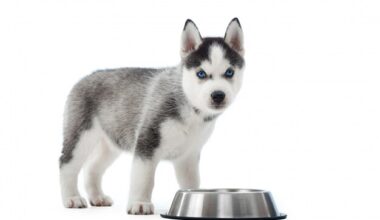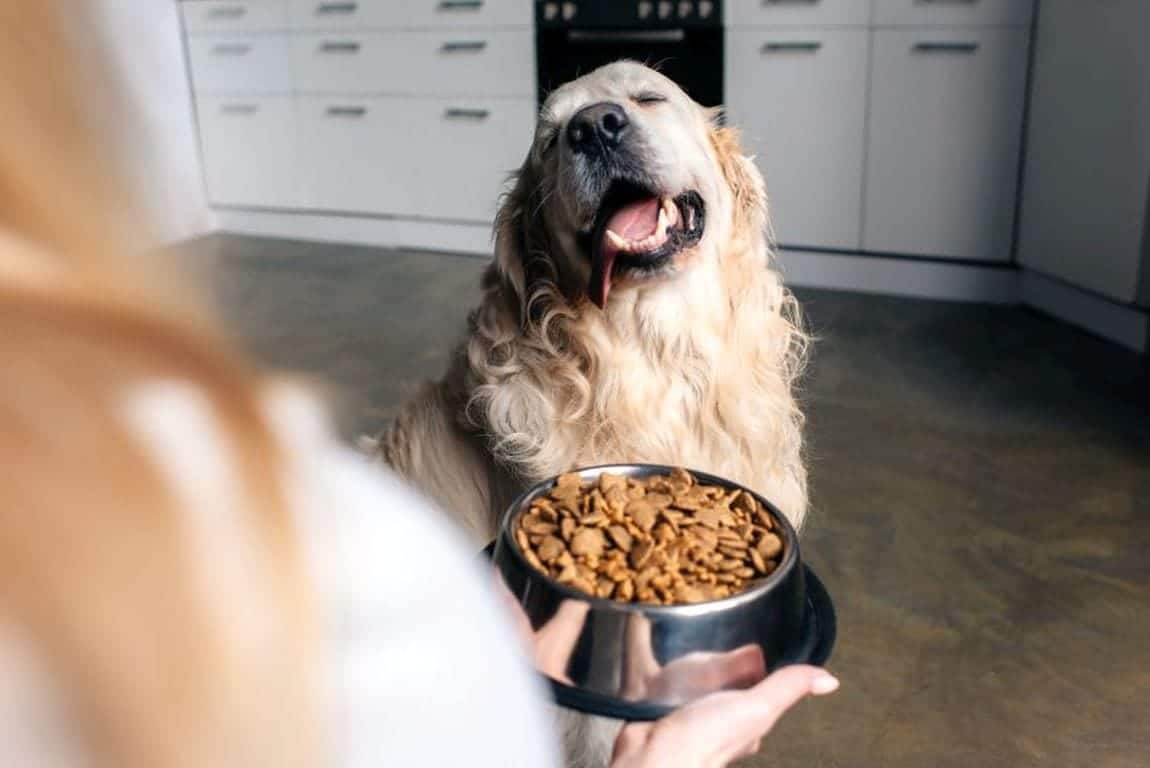Pickles are the perfect accompaniment to hamburgers, hot dogs, and sandwiches because they are crispy, crunchy, and have a salty-sour flavor. They are low in calories but high in vitamins and minerals, making them a rather healthy snack. But, pickle safe to eat with dogs? If you’ve ever questioned whether it’s okay to offer a pickle to your dog, the answer isn’t a simple yes or no. Pickles aren’t necessarily dangerous, but vets don’t suggest them. We’ll answer the question, “Can dogs eat fried dill pickles?” in this blog post.
Pickles are not poisonous to dogs in general. They have some nutritional health benefits, so providing them to your dog should be fine in theory. They are, however, highly heavy in salt and contain chemicals that may be detrimental to a dog.
Although pickles contain vitamins and minerals that are good for humans, the negative effects outweigh the benefits for dogs, according to Dr. Carly Fox, a staff veterinarian at New York City’s Animal Medical Center. “Overall, they’re not a good choice for feeding your dog.” Can dogs eat fried dill pickles? Let us take a look.
Can Dogs Eat Pickles?
Nothing beats biting into a crisp and tasty pickle, according to many people. And while you’re eating that pickle, your dog will undoubtedly beg for a bite, as he does with everything! While you may be tempted to give in to the begging and the eyes fixed on your food, there are some human foods that your dog should not eat.
Related Article: Can Dogs Eat Coconut
Pickles are typically thought of as brined cucumbers, or “pickled.” Pickling can be used for much more than simply cucumbers! Everything from carrots, peppers and other veggies to meats and even fruits is included. However, for the sake of this study, we shall concentrate on the conventional pickle: pickled cucumber. Pickles are frequently seen as a rather healthy human snack. There may even be some health benefits, such as aiding in weight loss and diabetes prevention.
Pickles are not inherently harmful to dogs in and of themselves. But the most crucial issue here is how the pickle is created. Can dogs eat pickles of any kind?
Pickles and Dogs
Cucumbers can be pickled in a variety of ways. Fermented pickles are available. Others are delightful. Others, like onions, are blended with other pickled vegetables. Pickles often have a high level of salt. These aspects must be addressed before feeding pickles to your dog. We’ll go over them in further depth later.
Without the additives, the pickle should be safe for your dogs. Many dogs, on the other hand, dislike the taste or smell of vinegar or brine. Even if you give them a pickle, these dogs will refuse to eat it!
They should be offered in moderation, like with other human foods that can be shared with dogs. And it’s always a good idea to start small with your dog to ensure that the meal doesn’t upset their stomach or cause another issue, such as an allergic response.
When Are Pickles Harmful to Dogs?
Onions are used in many pickle recipes, particularly those for homemade bread & butter pickles. Both white and yellow onions can be utilized, and both can produce anemia problems.
Onions are dangerous because they lead to the creation of Heinz bodies. While this may sound like something out of a ketchup bottle, Heinz bodies are far from appealing. They are clumps of hemoglobin that form when your dog consumes onions. These clusters of red blood cells are unable to deliver oxygen as they should. Red blood cells also die considerably faster than usual, resulting in hemolytic anemia.
Related Article: How Far Can Dogs Hear: All You Need To Know
The effects of onions on hemolytic anemia have long been explored. The good news is that it is rarely lethal unless your dog is fed onions daily over a long period. Anemia, on the other hand, can cause weariness, a loss of appetite, and exercise intolerance. It can be readily avoided, in part, by feeding your dog a nutritious diet.
Can Dogs Eat Fried Pickles?
Fried pickles are pickles that have been battered and deep-fried. Your dogs can eat a few pieces of fried pickles made with simple ingredients like cucumbers and dill. However, if the fried pickles contain any components that are potentially dangerous to the dog, it is recommended to avoid giving them any.
Can Dogs Eat Dill Pickles?
When it comes to those sour and delicious dill pickles, you don’t have to worry about added sugar. If you select a non-garlic type, you may have a safe and tasty snack for your dog.
There is only one thing to be cautious of, and that is the amount of salt in the pickles. Unfortunately, a medium-sized dill pickle can include anywhere from 700 to 1,500 mg of salt. In comparison, a teaspoon of salt contains around 2,300 milligrams of sodium, and one teaspoon is the recommended upper limit for daily human sodium consumption.
Related Article: Can Dogs Eat Peanuts? Is It Safe?
You may notice that your dog’s commercial food contains sodium. It is included for flavor, just like in our food, however, dogs should not be given too much salt. It stands to reason that dogs should eat significantly less sodium than humans. When looking at the daily requirements for dogs, 100 milligrams is indicated. This indicates that a single dill pickle slice may be sufficient to meet your dog’s daily salt requirements.
Of course, several reduced sodium dill pickle options on the market taste just as excellent as the conventional high sodium varieties, so keep an eye out for these. Just be cautious when making purchases. Although the pickles are low in salt, each spear can contain more than 100 milligrams.
Is Pickle Juice Safe for Dogs?
Can dogs consume pickle juice? If you’ve read about the health advantages of apple cider vinegar, you might believe that pickle juice, with its high vinegar level, is good for your dog. There is, however, no study to back up this assertion.
Furthermore, whereas apple cider vinegar is commonly praised for its health benefits, white vinegar is rarely praised by health enthusiasts. This is the vinegar that is used to produce pickles. Some pet specialists believe that vinegar isn’t even safe to use on dogs as a topical spray. Vinegar is frequently used as a flea repellent, but this claim is frequently supported by obsolete scientific papers. The vinegar can disturb the skin’s pH balance and make the coat appear dull. As a result, it is not even suitable as a topical agent, let alone one that your dog consumes.
Related Article: Anime Cat Names
When it comes to pH imbalances, the acidic nature of vinegar can induce stomach distress and diarrhea. The acid can also be taxing on the kidneys. If your dog is becoming older, his kidneys may not be able to handle and process as much acid as they used to.
Should I Feed Pickles to My Dog?
As previously said, your dogs may be averse to eating pickles. And in such a scenario, it’s preferable to let well enough alone. If your dog appears to want to share everything on your dish, even the pickle, double-check the contents first.
After that, assuming that the pickle fits the above conditions, give your dog a small taste. Before feeding him anymore, watch him for a few minutes to be sure there is no stomach trouble or other negative reaction.
Pickles for Dogs: How to Make Them
If the pickles in your fridge don’t have too much sugar, salt, or garlic, and haven’t been cooked with onions, it’s usually safe to offer your dog a piece as a treat. But can dogs eat full-fried dill pickles?
It’s best to avoid offering the dog an entire dill pickle. These are frequently fairly enormous, particularly in some types. That is most likely way too much sodium. You may also be concerned about whether your dog can eat pickles without harming himself. In their enthusiasm to eat a good snack, some dogs appear to swallow their treats whole. If your dog is the sort to eat things whole, try giving him a couple of pickle slices instead of a spear. However, even if spears are sliced in half, they might pose a choking threat. So keep this in mind if you want to give your begging dog a safe reward.
Conclusion
Pickles, as you have discovered, may or may not be safe. So don’t just throw that spear at your dog unless you’ve thoroughly examined the components and determined that it will not injure your canine companion. You should also make sure that pickles are only eaten on rare occasions.
Related Article: Can Dogs Get Poison Ivy?
Furthermore, it’s always a good idea to check with your veterinarian to see whether a pickle here and there can be added to your dog’s treatment routine. This is a particularly good idea given that pickles are not exactly a healthy diet for humans or pets. Of course, there’s always the possibility that your dog will dislike pickles due to their sour flavor.
Frequently Asked Questions
Why can't dogs eat pickles?
The main issue with giving pickles to your dog is their high salt level. Pickles include a lot of salt because they are cucumbers marinated in saltwater brine and vinegar. While the human body has adapted to the high salt content of pickles, dogs may develop health problems as a result of consuming too much salt.
Will a pickle hurt my dog?
Is it possible for your dog to eat pickles? In the end, our dogs desire whatever we’re eating, and basic pickles will not harm your dog. A little pickle slice or an occasional pickle will not damage them.
What foods are toxic to dogs?
- Garlic, onions, and chives The onion family is extremely poisonous to dogs, whether dried, raw, or cooked, and can cause gastrointestinal irritation as well as red blood cell destruction.
- Chocolate.
- Macadamia nuts.
- Corn on the cob.
- Avocado.
- Sweetener synthesized (Xylitol)
- Alcohol.
- Cooked bones.
Can dogs have cheese?
Yes, dogs can eat cheese. In reality, cheese is frequently used as a training tool, particularly for pups.






